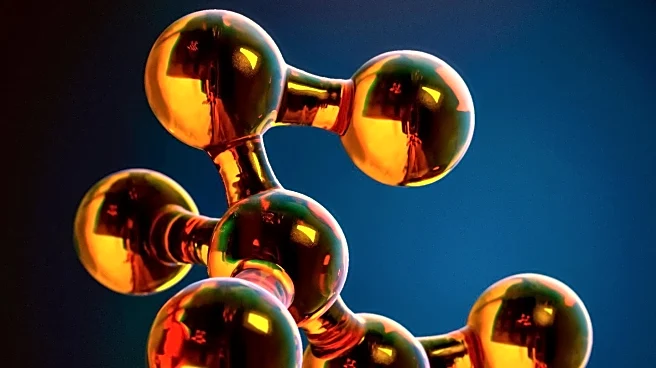What's Happening?
Researchers at the University of Delaware, led by Associate Professor William Chain, have developed a method to synthesize a molecule found in guava plants that shows promise in fighting liver-related cancers. This breakthrough utilizes a process known as natural product total synthesis, allowing the creation of these molecules using widely available chemicals. The research, published in Angewandte Chemie, provides a low-cost method for producing large quantities of the molecule, potentially leading to more effective and affordable treatments for liver cancer, which is one of the leading causes of cancer deaths globally.
Why It's Important?
Liver cancer poses a significant health burden, particularly in the United States, where chemotherapy treatments are costly and survival rates for late-stage liver cancers remain low. The ability to synthesize the guava-derived molecule could revolutionize treatment options, offering a cheaper alternative to existing therapies. This development is crucial as the incidence of liver and bile duct cancers continues to rise, with projections indicating a substantial number of new cases and deaths annually. The research opens avenues for collaboration and further exploration of the molecule's efficacy against other cancer types.
What's Next?
The research team is collaborating with the National Cancer Institute to explore further applications of the synthesized molecule. Future steps include testing its effectiveness against other cancer types and refining the synthesis process for broader use. This collaboration could lead to new treatment protocols and potentially improve survival rates for various cancers, enhancing the overall impact of this discovery.
Beyond the Headlines
The synthesis of natural product-based molecules highlights the importance of leveraging nature in medical advancements. This approach not only addresses the scarcity of natural resources but also encourages innovation in drug development. The research underscores the potential for scientific collaboration to pave new pathways in cancer treatment, fostering a global effort to combat one of the most challenging health issues.










